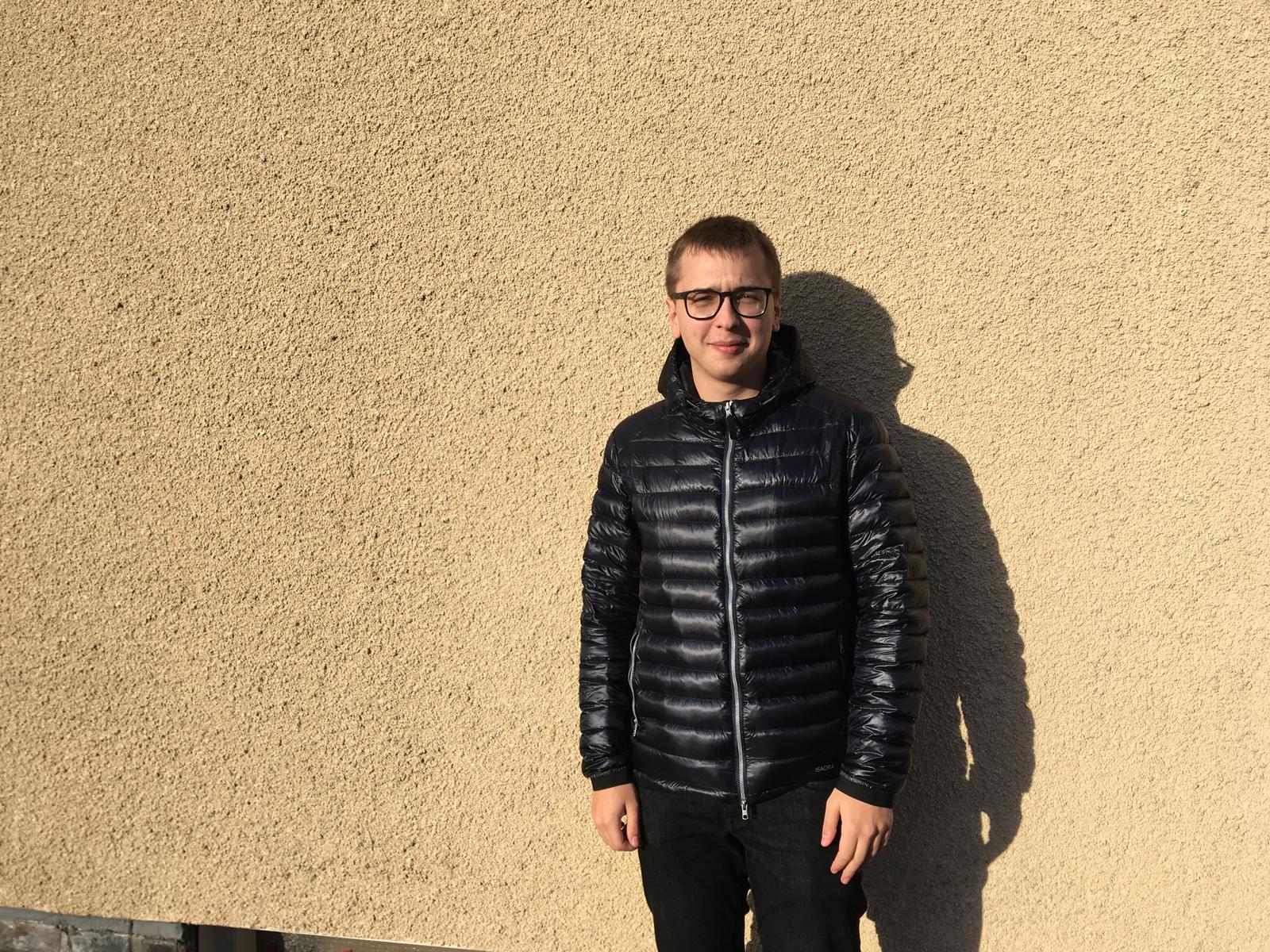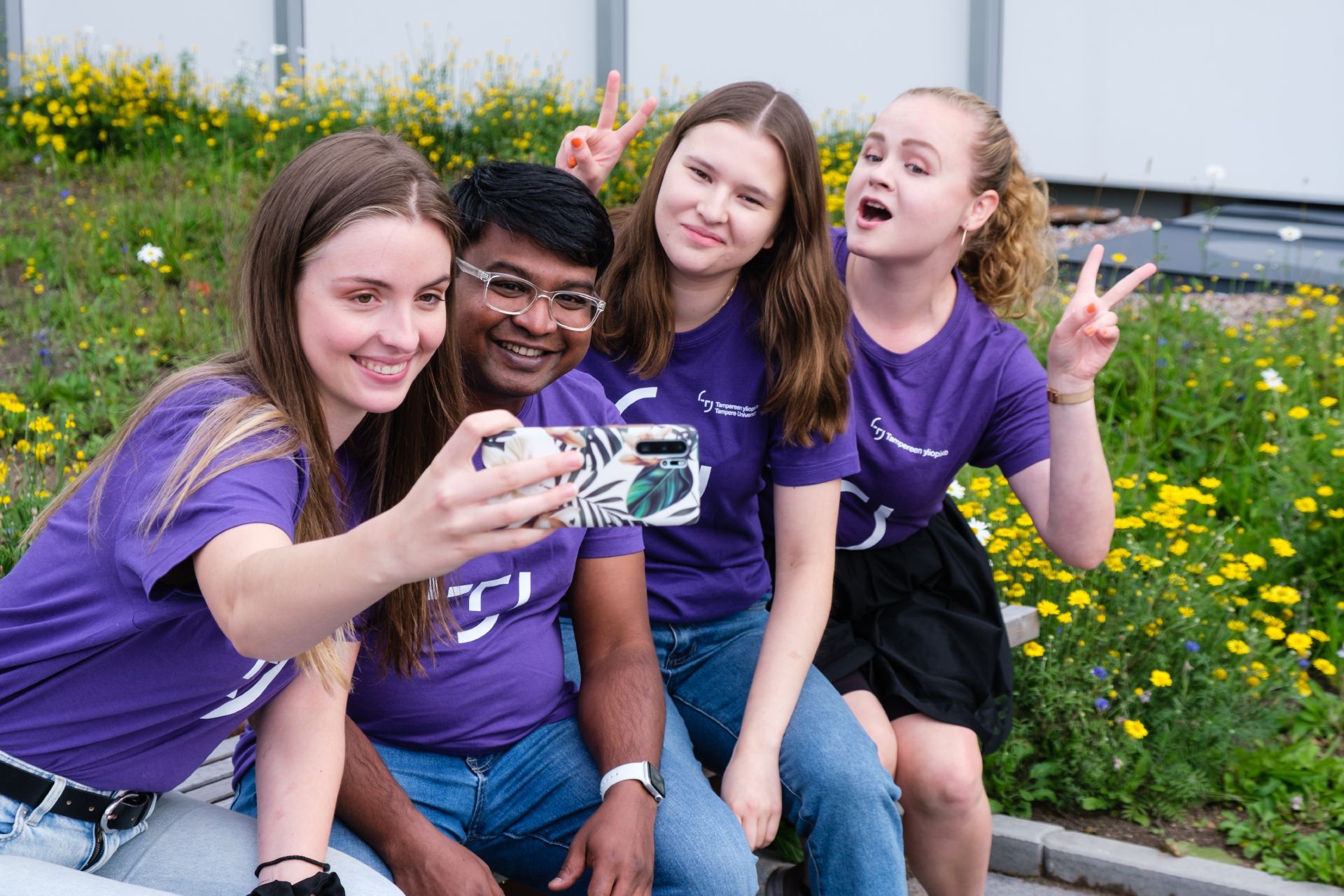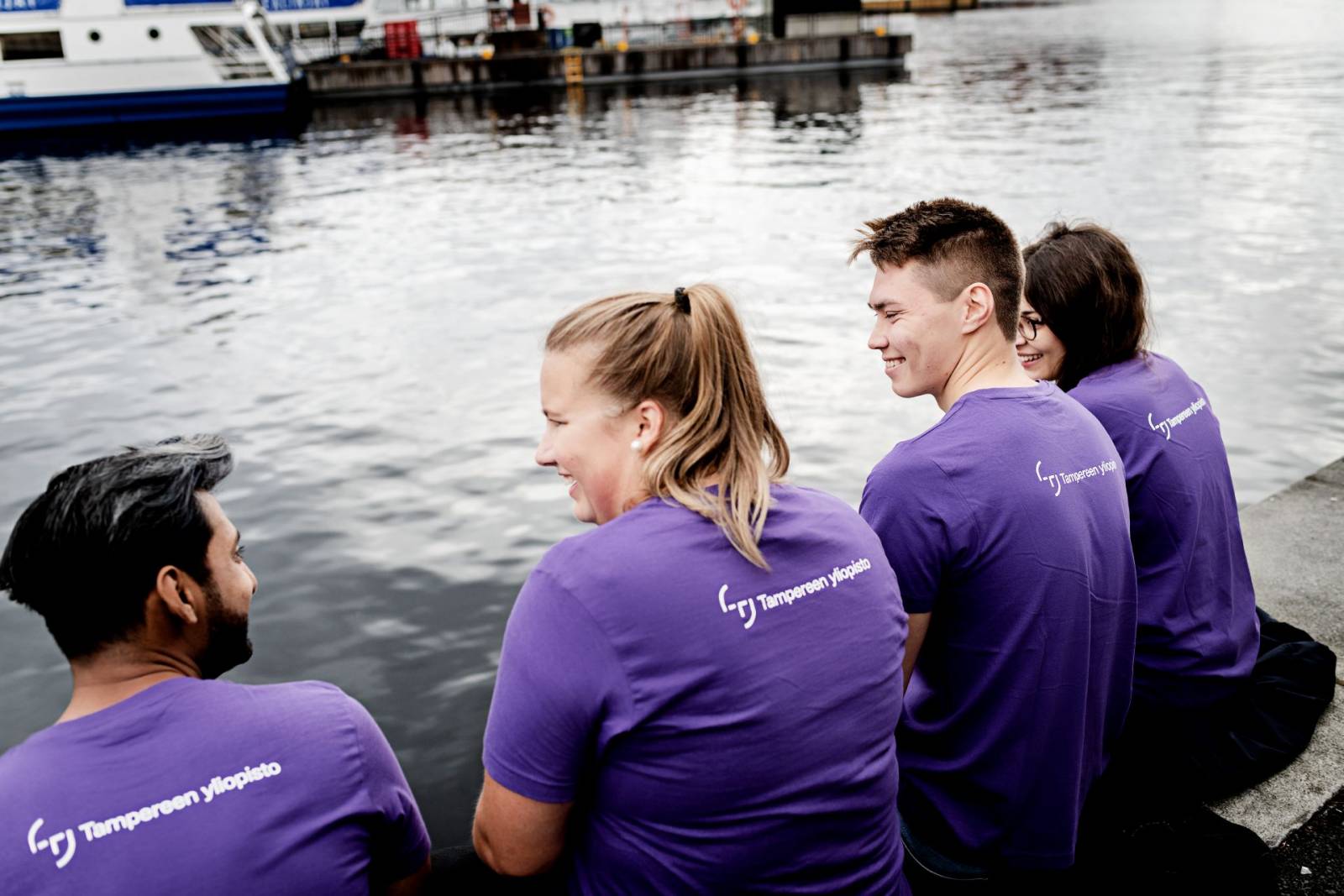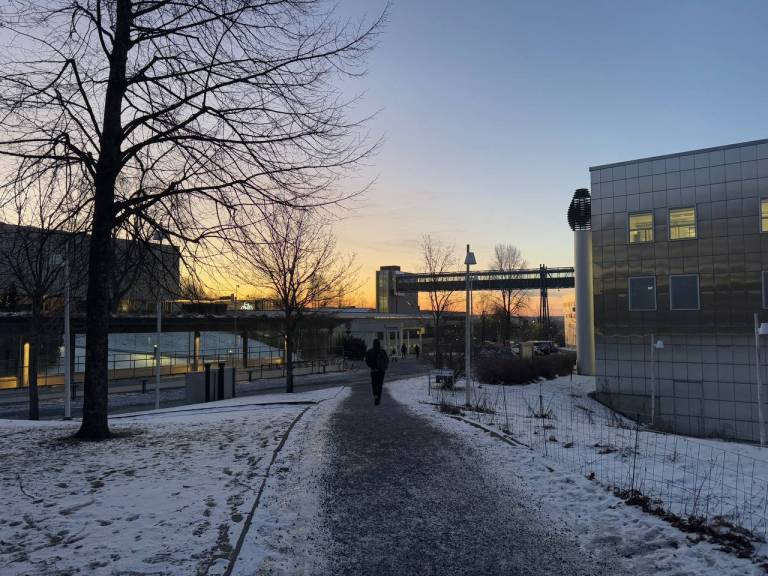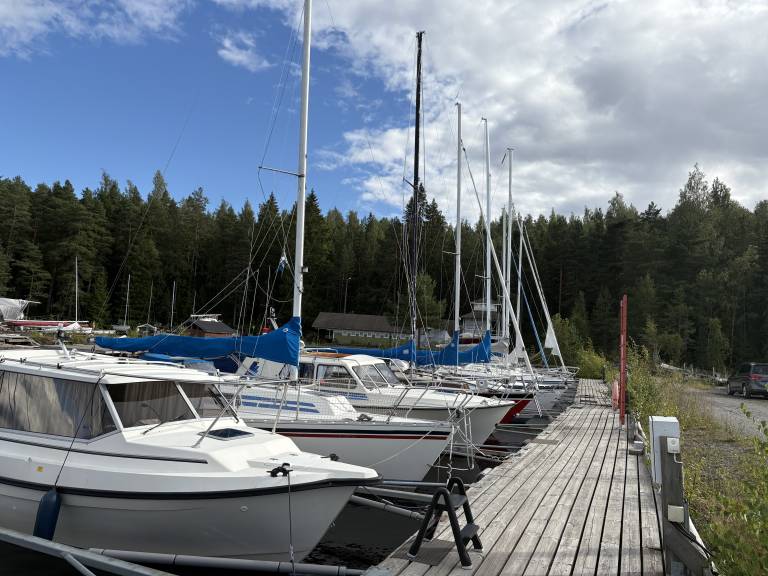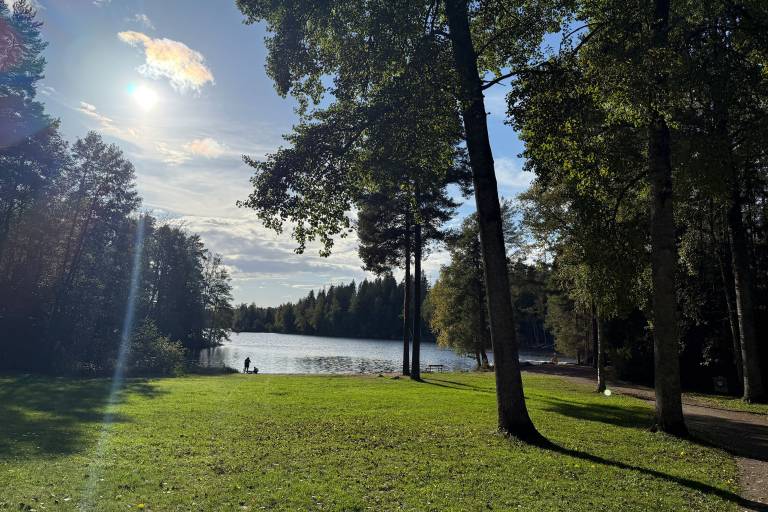Georgina, Doctoral Programme in Interactive Technology
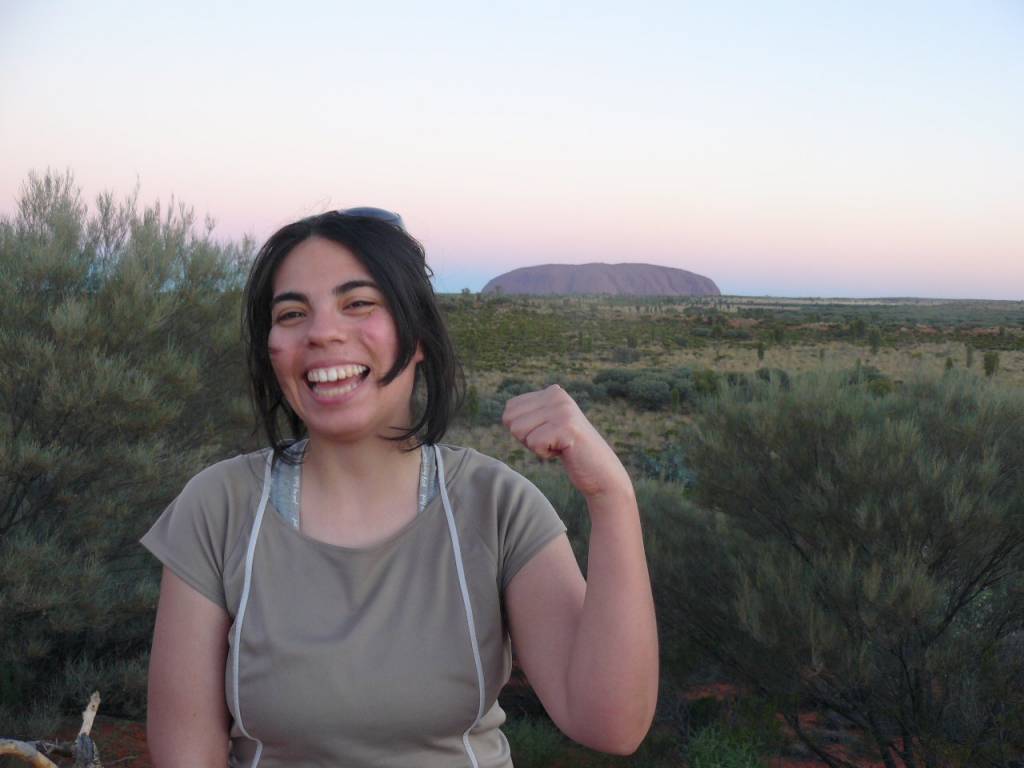
Before starting the programme I had already earned three Master’s degrees and acquired 20 years of experience in the field of sustainable development. However, I wanted to move forward and bring together my work experience with theoretical knowledge.
It was not an easy task at first, since I was looking for a study programme that in addition to theoretical approaches would also incorporate something that I could bring into practice. I was in the lookout of a multidisciplinary programme because I wanted to explore immersive approaches, and sustainable development.
Interestingly enough, the opportunity arose when I was not really looking for it. When I was asked if I wanted to organize the summer school of the European Society for Ecological Economics to take place in Finland, and I was in the middle of my maternity leave, I found this invitation as a good way to contribute to my professional life without the normal stress associated to it.
One of the members of the summer school facilitation team was from Tampere University and, during our co-creative process, we talked about the potential of games and gamification for interdisciplinary work. She asked me if I had considered getting in touch with Tampere’s gamification group for carrying out my own research. I reached out to them, and the rest is history.
I ask them two questions: “How often do you use your smartphone, and what do you use it for?”
It is difficult to shortly describe my study programme, Interactive Technologies, but whenever I am trying to explain it to others, I ask them two questions: “How often do you use your smartphone, and what do you use it for?” And although the answers are different from person to person, the idea is always the same – our lives are deeply connected to our smartphones.
We use apps to count steps, calories, store photos, look up recipes, find our way around, chase Pokemons, learn to play the piano and even create entire virtual environments from the comfort of our couches. My programme is all about exploring these interactions between people and the technologies that change and shape us.
My experience with the university has been great, and I am happy by my choice to be a full-time researcher. The only hiccups I encountered so far is that since the university merger ended very recently, some of the instructions can be outdated, or some online forms do not work etc.
I joined last year after the merger, so I’m definitely enrolled at the new Tampere University. However, all these challenges have been overcome by the university staff, from the students’ affairs office to the helpful, friendly and quick IT Helpdesk, who have solved every single one of my problems. So, my advice for future students is to be ready for surprises and take them as they come, there is a good and strong help network to sort out any complication they may encounter.
Raysa, Master’s Degree Programme in Leadership for Change
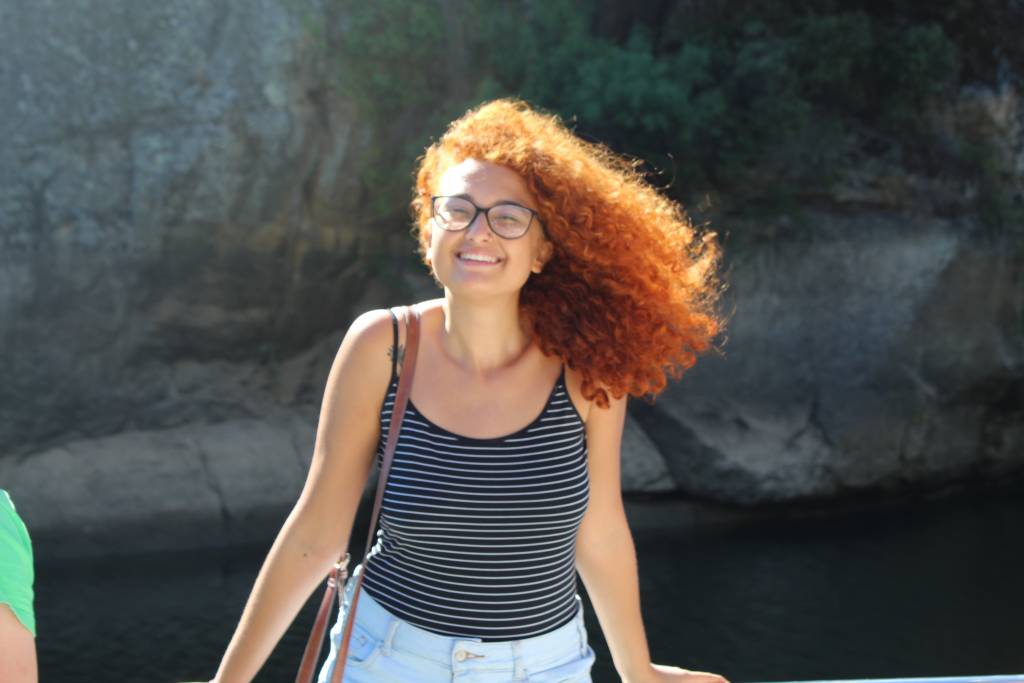
I came to Tampere University in September 2019. Before that I was an exchange student in Jyväskylä and I really liked Finland, so I knew I had to do my Master’s degree here. It is not easy to shortly describe my programme, because it is a multidisciplinary programme that mixes approaches of public administration, business studies and political science.
At the same time, the programme also tries to incorporate sustainability into all of the aspects above. Leadership for Change is a new programme, so it can be a bit messy sometimes. It covers a lot of different areas and tracks, but I personally chose to focus on public administration.
When I was choosing a programme there were two main criteria I was looking for: it had to be about sustainability, and it would need to provide a scholarship that could cover my living expenses.
One of the most surprising things about studying in the programme was the sheer amount of opportunities you have to learn almost anything you want.
I found two programmes, one in the University of Helsinki and another in the Tampere University. I contacted both of the universities but only received an invitation to visit from Tampere. It was really nice; I had a chance to get to know the teachers and the university itself. Everybody in there were very kind and helpful, while University of Helsinki seemed a bit distant and unresponsive, so the choice was made, and I am really glad I am studying here now.
One of the most surprising things about studying in the programme was the sheer amount of opportunities you have to learn almost anything you want. You can take courses from all three campuses and do some interesting projects in Y-campus.
In the beginning it was actually kind of hard for me to even choose because there were so many appealing courses. Something I did not realize was that since the programme is new, the curriculum is a little messy sometimes as it is still in development. For example, we are now doing proposals for the thesis work and people have many different topics. I am doing mine about a national park, someone else chose digitalisation of government and another person chose Red Cross for their thesis. These are completely different topics.
My advice for someone considering enrolling in the programme would be to go ahead and talk with current Leadership for Change students. It is a lot easier to figure out if the programme suits you or not before you get in and then have to choose another after half a year or more.
Leadership for Change is an academic programme which for me is fine since I come from the academic background, but many people want something more applied and practical. In that case, I would recommend looking at similar programmes in the Universities of Applied Sciences.
Kari, Bachelor’s Degree Programme in Environmental Engineering
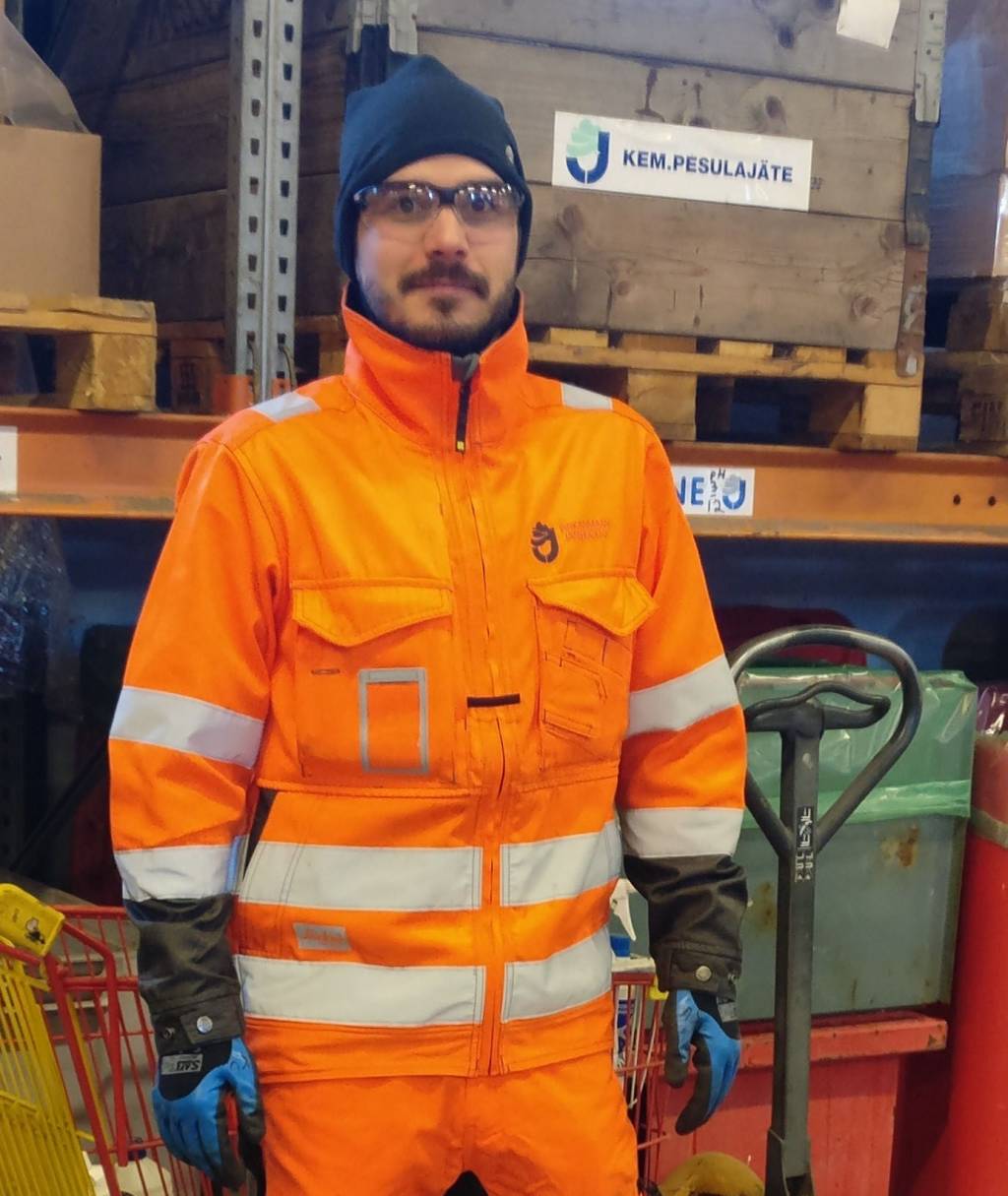
I am currently in my second year of environmental engineering at TAMK. However, I actually had some studies from another university before, so I was able to take 3rd and 4th year courses during my two years in this programme. Because of that I think I have a pretty good understanding of what environmental engineering is all about.
I would describe the programme as a holistic study programme encompassing environmental aspects of land use, some research, conservation of our surroundings, measuring and analyzing a whole lot of different areas. Subject matters range from chemistry of soil all the way up to decision making at Brussels and even beyond. So, on your 1st and 2nd year it is a little bit about everything and on your 3rd year you can specify your knowledge in the direction you feel is most important and interesting to you.
I had two main reasons for choosing this particular programme: the idealistic and the practical. The idealistic one was that environmental issues have been close to my heart for a long time, as far back as my childhood. Nature conservation, treating animals properly and recycling were things that I was taught growing up. So, I wanted to do something meaningful as my career.
I had two main reasons for choosing this particular programme: the idealistic and the practical.
The practical part was that, unfortunately, humans tend to destroy everything they touch on the planet at such a pace that environmental engineers will not be running out of jobs in any foreseeable future. Additionally, being able to study in English was a big bonus as I do enjoy the language.
Starting my studies, I knew what to expect from math and practical work compared to my previous university experience, but I still was pleasantly surprised with how much of it you can do when choosing the courses. I also really enjoy the diversity of the programme, all the different people from all around the world and even from different parts of Finland, too. There is, however, a frequent change in personnel in the ENVE programme which is something I can certainly live without.
To all the people thinking about studying environmental engineering at TAMK I would say: “Go for it!” And especially for Finns studying in English it is a great opportunity which very few actually take. It is almost heart-breaking to see someone who clearly can handle a degree in English not even apply because they think their English is not good enough. Studying in an international degree programme is a wonderful experience and I would love to encourage everyone to give it a go.
Interview written by Nikolai
Cover photo: Amanda Aho
